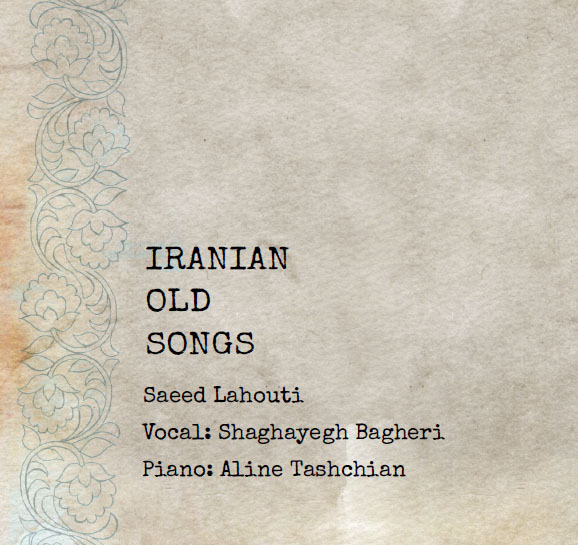Iranian Old Songs
If we acknowledge that music is a distinctly human phenomenon created by and for people, we must recognize that reflections on this remarkable art form throughout history and across various musical cultures deserve more than mere classification as organized sounds. This phenomenon often evokes deep contemplation and conflict. Music does not exist solely in the mind of its creator, nor is it simply a tangible experience through performance; rather, it occupies between these two realms. In this sense, music is considered extraordinary due to its intersubjective nature. Consequently, old songs that are refined and continued to resonate through human experience are even more remarkable.
Lahouti's collection of compositions, titled "Iranian Old Songs," includes pieces such as "Tak Derakht," "Aqrab-e Zulf Kaj," "Ashegham Man," "Zulf-e Sarkaj," and "Mashin-e Mashti Mamdali." Although these songs evoke a sense of nostalgia associated with Iran, the composer presents them from a fresh perspective with backing to the song itself. Understanding the essence of a song involves recognizing its potential, which lies within its phenomenological nature. Lahouti doing phenomenology in his compositions, consciously navigating through the historical context of these songs. In the spirit of Husserl, he returns to the songs themselves, offering an unseen perspective that allows for a new understanding of them. This process entails more than just identifying what a song is; it involves exploring what it could or could not be. Through this phenomenological approach, the composer engages with the music actively rather than passively. He reflects on the elements required for these songs to exist, considering how various factors impact the essence of each piece. This active participation including “Eidetic variations” leads to modifying certain features, determining what can be altered without compromising the song's core identity. Among the compositions, "Tak Derakht" and "Mashin-e Mashti Mamdali" exemplify this approach particularly well. Other songs, such as "Aqrab-e Zulf Kaj" and "Ashegham Man," also follow this phenomenological method.
The composer views these songs as a fusion of tradition and modernity, constituted by his lived experiences. He believes these pieces serve as vital connections between the worlds of Iranian traditional and contemporary music. His life is deeply reflected in his compositions, which he regards as an ongoing and experiential project. In the song “Aqrab-e Zulf Kaj,” it’s as if the composer delves into his own inner world, while in “Mashin-e Mashti Mamdali,” he emerges from those depths. This sense of incompleteness may be one of the most remarkable properties of a musical work.
Mohammadamin Khalilian
قطعه ها
time:4:15 Saeed Lahouti Vocal:Shaghayegh Bagheri piano:Aline Tashchian
time:3:50 Saeed Lahouti Vocal:Shaghayegh Bagheri piano:Aline Tashchian
time:4:21 Saeed Lahouti Vocal:Shaghayegh Bagheri piano:Aline Tashchian
